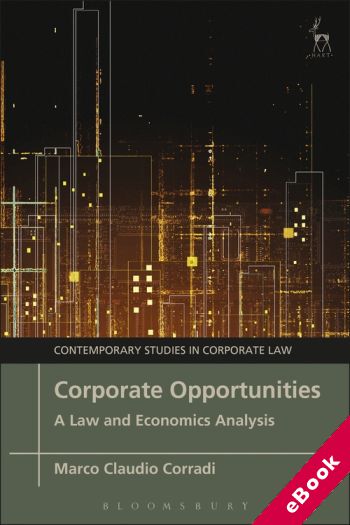
The device(s) you use to access the eBook content must be authorized with an Adobe ID before you download the product otherwise it will fail to register correctly.
For further information see https://www.wildy.com/ebook-formats
Once the order is confirmed an automated e-mail will be sent to you to allow you to download the eBook.
All eBooks are supplied firm sale and cannot be returned. If you believe there is a fault with your eBook then contact us on ebooks@wildy.com and we will help in resolving the issue. This does not affect your statutory rights.
This monograph provides a comprehensive analysis of corporate opportunities doctrines from a comparative perspective. It looks at both common law and civil law rules and relies to a large extent on a law and economics approach. This book broadens the conventional view on corporate opportunities, a vital step in light of the adoption of corporate opportunities rules in civil law jurisdictions and in light of investors' ever-changing strategies. This approach considers institutional complementarities and especially industrial complementarities. The book thus explores several jurisdictions and their economic and industrial environments, whilst also assessing the impact of globalisation onto legal reform. Furthermore, it analyses the problems related to the application of corporate opportunities rules to cross-border venture capital. In normative terms, the book advances one main stance, articulated in three points: first, it proposes different sanctions for undisclosed and disclosed misappropriations, supporting the core idea that sanctions should be set against disclosure and not authorisation. Secondly, it advances the idea that sanctions against undisclosed misappropriations should be more severe than the ones presently applied. Thirdly, it considers the possibility of a more flexible treatment of disclosed misappropriations.
This study is positioned at the intersection of several fields, providing a lens into a much broader range of dynamics that will be of interest to a varied international readership, and offering a window into the broader institutional dynamics at work in centres of innovation (eg. Silicon Valley and industrial districts in other jurisdictions). It is rooted in law and economics, but the emphasis is placed on how corporate opportunities rules fit within a broader set of institutional dynamics that affect innovation, industrial efficiency, and economic competitiveness.